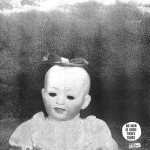VHS tapes haven’t been relevant in years, so when Ty Segall sent his newest record to music journalists on VHS, it shed light on his thought process while recording the album. The busiest man in rock music is eager to try new things.
His latest effort, “Emotional Mugger,” applies lo-fi production techniques to heavy guitar riffs, low droning synths and a psychedelic vocal drawl to craft a novel yet distinctly Segall soundscape. Lo-fi production is characterized by recording at a fuzzier quality than what’s standard, so it stands to reason that Segall introduced “Emotional Mugger” to the world of musical criticism via VHS tape.
Segall is an artist who harks back to the late ’60s heyday of psychedelic rock ’n’ roll, yet still manages to push forward despite occasionally straying from a focused sound. Growling synth sounds, unconventional in a rock record, accent a repeating guitar riff throughout the first track, “Squealer.” On “California Hills,” he deviates from a typical song structure by changing tempo a few times before breaking into one of the album’s best track endings, a fast and fluid guitar solo.
With the title track and “Breakfast Eggs,” Segall gives listeners a small dose of his Lennon-esque side evident on 2011’s “Goodbye Bread” and “The Hill,” the first single from 2012’s “Twins.” Segall’s wistful tenor and enunciation is shockingly similar to John Lennon’s on The Beatles’ more psychedelic tracks like “Lucy In the Sky with Diamonds.”
Segall is at his best on the final track of the album, “The Magazine,” which features clear, unadorned vocals backed by pulsing synths and a steady drum beat. The song slows the record down to a gratifying finale, featuring a wailing guitar solo that’s progressive, but not out of place.
While Segall sounds like he’s completely in his own element, his primary drawback on the album is too much noise. While Segall used noise extensively in his 2008 self-titled debut, “Emotional Mugger” lacks the polish of 2014’s “Manipulator” and his other albums.
The latter half of the album treads dangerously close to repetition, with songs like “Candy Sam” and “Mandy Cream” sounding similar in their subject matter and song structure.
Unfocused exploration of electronic sounds also runs rampant in the album’s latter half. “Baby Big Man (I Want A Mommy)” is Segall’s flirtation with dissonance, and a far cry from the classic rock melodies that listeners have come to love. “W.U.O.T.W.S.” is the result of unchecked experimentation with a synthesizer. The track sounds like Segall spliced together other tracks on the album and then overlaid mismatched synths, creating a legitimately disorienting effect.
To record an album like this, Segall had to let loose a little bit. In the process of doing so however, he loses sight of the more melodic elements of his work. Gone is the orchestration and production finesse that graced 2014’s “Manipulator.”
Despite its title, “Emotional Mugger” also lacks much emotion other than the novelty of Segall’s sound itself. Most of the songs seem to be about candy – a commodity for which Segall has made his liking very public, so the album fails to convey any pathos with its lyrics.
“Emotional Mugger,” however, deserves credit for effectively taking psychedelic rock to new places with its lo-fi production. One of the responsibilities of a musician is to redefine and reinvent in his or her genre. Segall pushes rock ’n’ roll to new frontiers and does his best to maintain a tried-and-true classic groove, but on “Emotional Mugger,” he falls short a few too many times.
– Tridib Biswas
